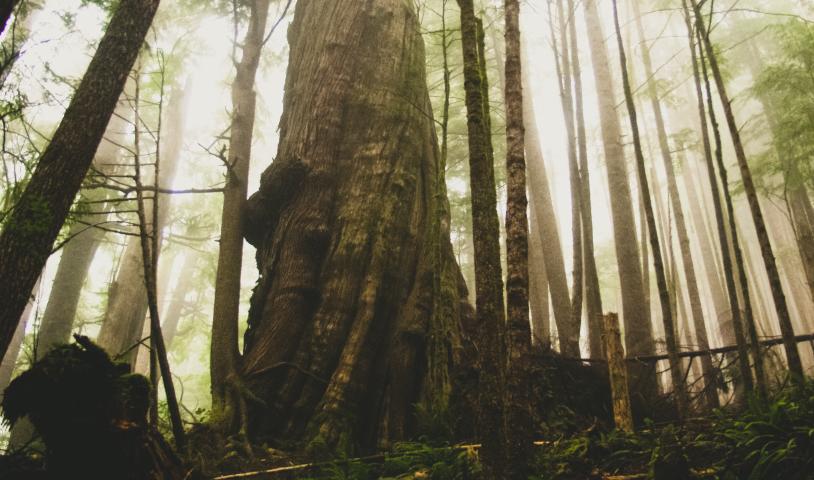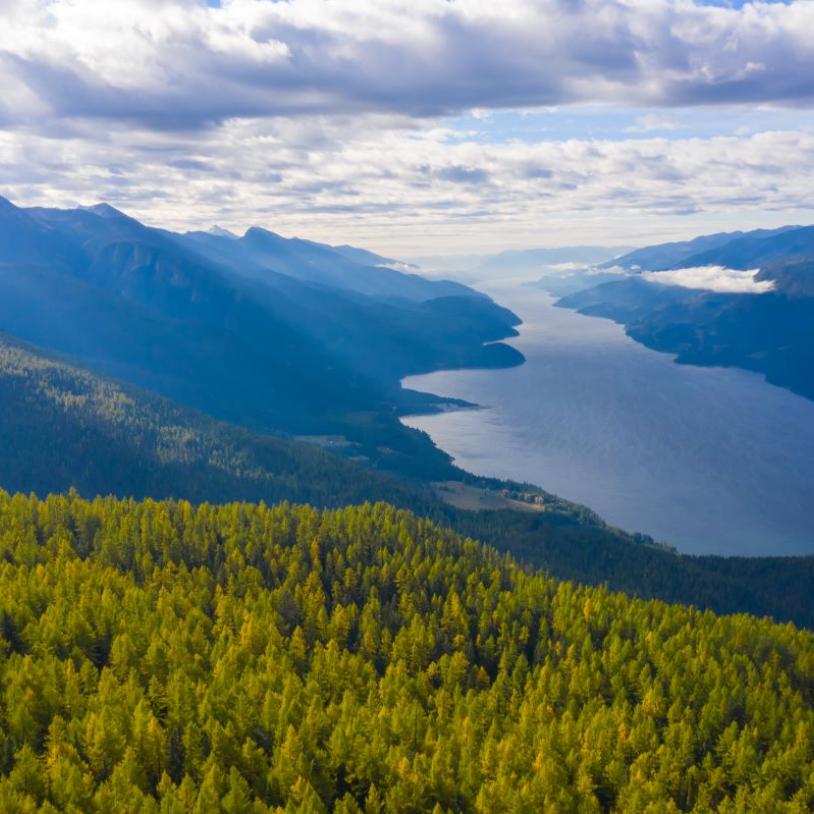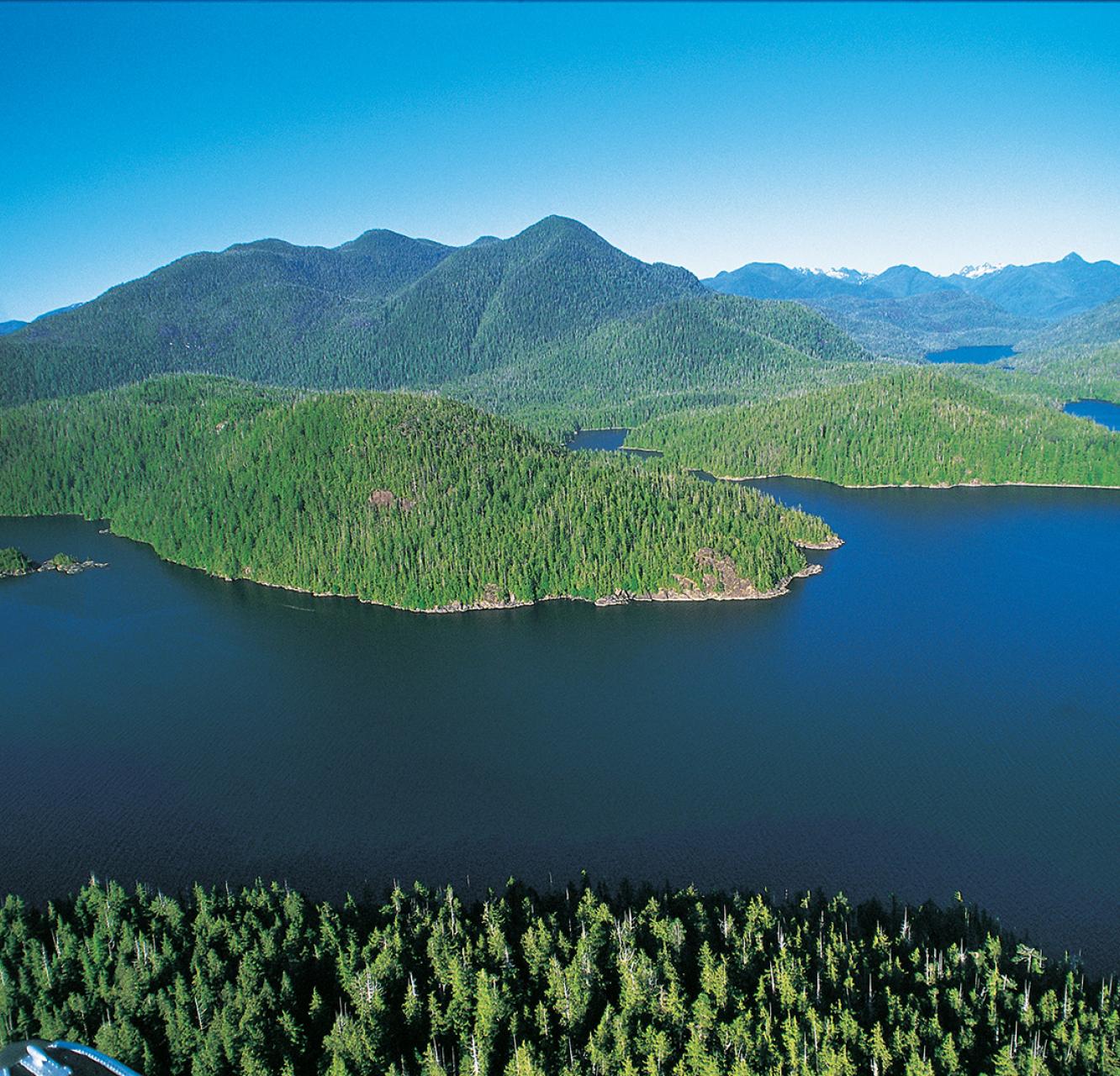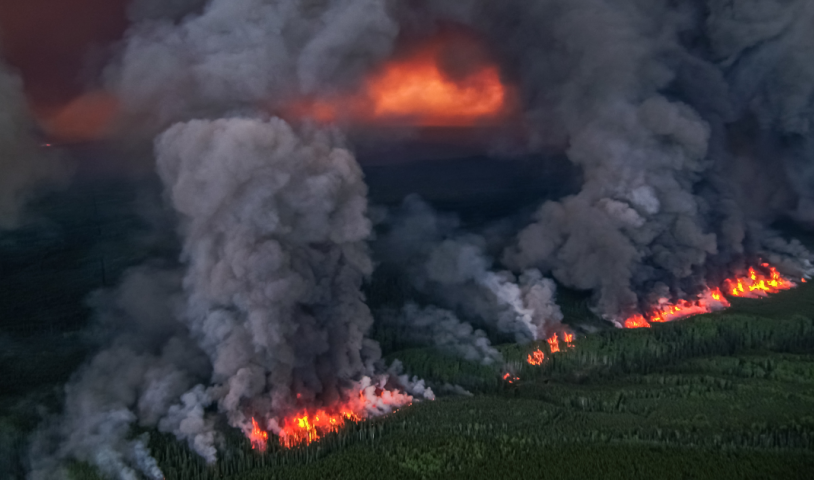B.C. government releases old‑growth report and responds to decades of activism with solid first steps in key areas
Friday, September 11, 2020
Logging deferrals on 353,000 hectares of forest are encouraging, the BC government must expand this to protect all ancient forests
VICTORIA (unceded Lekwungen territories) – The B.C. government released its long-anticipated independent report on old-growth forests today and announced initial measures to respond to its findings. The government has deferred logging in several at-risk areas totalling over 350,000 hectares — 200,000 hectares (about two-thirds the area of Metro Vancouver) of which is old-growth forest. The Wilderness Committee celebrates today’s announcement as a significant opportunity to protect all remaining old-growth in B.C. The organization is now calling on government to commit to implement all fourteen of the report's recommendations and take additional immediate steps to ensure protection for endangered forests.
“Logging deferrals in hundreds of thousands of hectares of old-growth forests, especially in key areas like Clayoquot Sound, the “Donut Hole,” Incomappleux Valley and McKelvie Creek, is a good step forward on this campaign,” said Wilderness Committee National Campaign Director Torrance Coste. “The report’s recognition of the need for a total paradigm shift in forestry is great to see and now it’s time for government to start making these changes.”
The Wilderness Committee is calling today’s announcement the result of decades of activism from First Nations to municipalities to organizations to the hundreds of thousands of citizens who’ve fought for old-growth across the province.
“Old-growth forests in B.C. are in crisis and today the government has acknowledged logging them is unsustainable,” said Coste. “But the reality is, important, non-renewable forests with thousand year-old trees and critical habitat for endangered species will still be cut down today, so this needs to be a first step with substantial follow up in the immediate future .”
The independent Old-growth Strategic Review Panel was created by the government last year and undertook a nearly six-month public consultation process in late 2019 and early 2020, the most extensive on this issue ever done in B.C.
The Wilderness Committee agrees with the reports’ fourteen recommendations, especially the need for First Nations to be at the centre of decision-making around old-growth and for forest management decisions to be based on ecosystem health rather than timber supply.
The independent panel reported “unanimous consensus” for change in the way old-growth is managed and wide recognition that status quo forestry management is not sustainable.
“This report is a good assessment of where things are at. Now government must expand on its measures and move from temporary deferrals to permanent protection in a way that honours and uphold Indigenous rights and title,” said Coste. “Our work shifts to fighting tooth and nail to ensure the government follows through on these commitments and takes further action to guarantee the survival of all old-growth forests.”
One area the report fails to fully assess is the socio-economic aspect of protecting old-growth, and how impacts on communities could be mitigated.
“Old-growth forests are in trouble and so is the forest industry,” said Coste. “Status quo logging is an ecological nightmare and an economic dead-end for communities, so government needs to invest immediately in shifting jobs that depend on cutting old-growth to ones that don’t and protect workers in the meantime.”
Recent months have been characterized by a report highlighting how the government radically over-estimates the amount of remaining old-growth and the loopholes in current old-growth targets, and by an uptick in forest activism, from hunger strikes to blockades. Polls show an overwhelming majority of British Columbians want to see old-growth forests protected.
“Because old-growth forests are being destroyed in B.C. as we speak, the ability to ensure these non-renewable ecosystems survive gets lower every day,” Coste said.
“Old-growth forests don’t have a lot of time, so this government will be judged on how quickly it implements the recommendations in the independent report.”
–30–
For more information, please contact:
Torrance Coste, National Campaign Director
250-516-9900, torrance@wildernesscommittee.org





